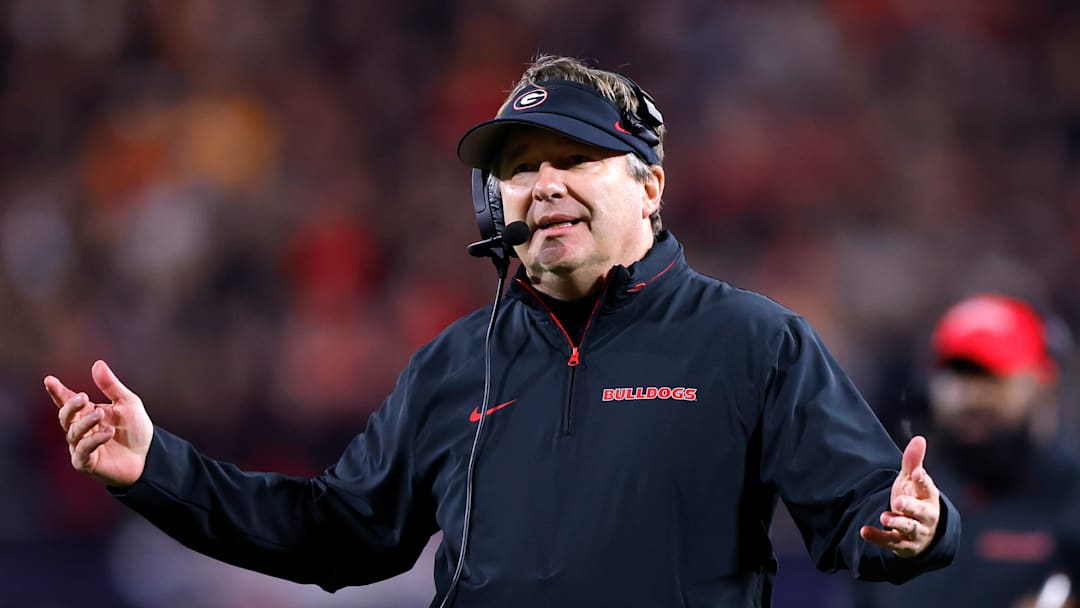The Georgia Bulldogs have long been synonymous with success on the recruiting trail, consistently landing elite talent to sustain their dominance in college football. However, the recent decision of five-star defensive lineman Justus Terry to commit to Texas instead of Georgia has sparked a conversation about the evolving landscape of college football recruiting in the NIL (Name, Image, and Likeness) era.
For a program like Georgia, which prides itself on developing top-tier talent and competing for national championships, missing out on a player of Terry’s caliber is not just surprising—it’s a wake-up call.
The NIL era has introduced a new dynamic into college football, where players can earn significant financial benefits based on their marketability. Programs with strong NIL collectives and resources have gained an edge in securing top recruits, and Georgia is finding itself in the middle of this shift.
While the Bulldogs are no strangers to the NIL game, the competition for players like Terry often comes down to which program can offer the most lucrative opportunities. Reports suggest that Texas, bolstered by its vast alumni network and booming NIL infrastructure, presented an offer that was too enticing for Terry to pass up.
This isn’t just about money—it’s about the perception of long-term value. Recruits like Terry are evaluating how a program can set them up for success both on and off the field, and NIL plays a significant role in that equation.
Georgia’s reputation for producing elite defensive linemen is unmatched. Under head coach Kirby Smart, the Bulldogs have developed NFL standouts like Jordan Davis, Travon Walker, and Jalen Carter. For years, that development pipeline was a primary selling point for recruits like Terry, who aspire to reach the next level.
But in the NIL era, development alone isn’t always enough. The rise of NIL collectives has shifted priorities for some recruits, making financial stability and brand-building opportunities equally important as athletic development.
Justus Terry, ranked among the top defensive linemen in the 2025 class, would have been a cornerstone of Georgia’s defensive future. His combination of size, athleticism, and skill made him one of the most sought-after recruits in the country. Losing out on a player like Terry is rare for Georgia, which has dominated the recruiting trail for much of the last decade.
For Texas, Terry’s commitment is a monumental win that signals its rise in the SEC. The Longhorns, newcomers to the conference, have quickly established themselves as a recruiting powerhouse, using their resources and NIL infrastructure to compete with the SEC’s elite.
After the news broke, Kirby Smart addressed the challenges of recruiting in the NIL era.
> “We’re always going to focus on what we can control—developing our players, winning championships, and preparing them for the next level,” Smart said. “NIL is part of the game now, and we’re committed to giving our players every opportunity to succeed on and off the field.”
Smart’s comments highlight Georgia’s approach: balancing the traditional values of player development and winning culture with the realities of NIL-driven recruiting.
While missing out on Justus Terry is a setback, Georgia’s recruiting machine remains one of the most formidable in college football. The Bulldogs continue to hold commitments from several elite prospects and are in contention for others in the 2025 class.
However, this situation underscores a broader reality for Georgia and other traditional powers: the NIL era has changed the rules of engagement. Programs must adapt to these changes or risk losing ground to rivals with deeper NIL pockets.
For Georgia, the focus now shifts to maintaining its competitive edge in a rapidly changing landscape. This means strengthening its NIL infrastructure, enhancing its ability to retain top talent, and continuing to dominate on the field.
The Bulldogs have built a dynasty on the foundation of hard work, elite coaching, and relentless recruiting. While NIL presents new challenges, Georgia’s track record suggests it is more than capable of adjusting and continuing to compete at the highest level.
In the end, the loss of Justus Terry serves as a reminder that even the most successful programs must evolve. As Georgia navigates the complexities of the NIL era, its commitment to excellence remains unwavering—a testament to why it has been and will continue to be a force in college football.
